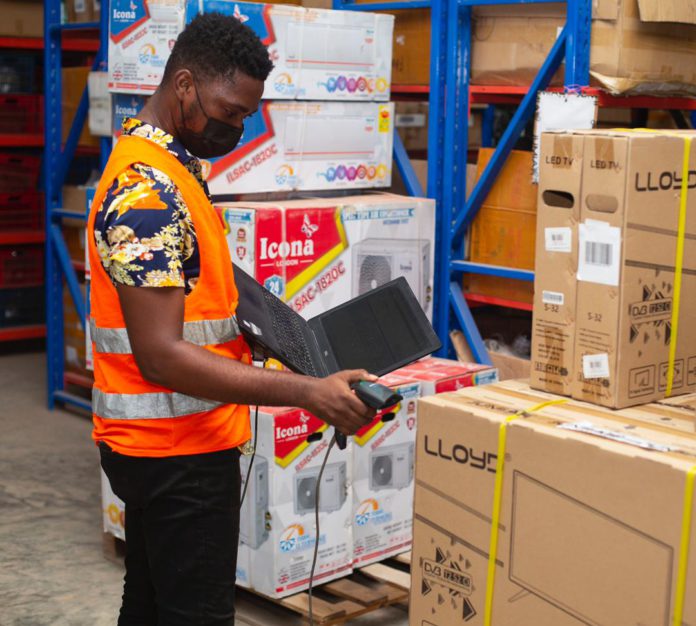
The dream of many Ghanaian children is to go to school, get a good job, live a decent life and take care of their families. However, not all of such dreams come into fruition.
In 2020, the unemployment rate in Ghana was at approximately 4.51 percent of the total labor force. The unemployment rate is the percentage of a country’s labor force that are without jobs but are available to work and actively seeking employment. This is an increment from the 4.16% in 2018 and 4.22% in 2019. WOW! Graduates from tertiary education, both sexes (number) in Ghana was reported at 109874 Persons in 2018 and this number increases year on year.
Maybe in comparison to other developing countries, this seems like it’s encouraging. However if we take a closer look at the active labor force of Ghana which stood at almost 13million in 2020, we begin to get a clear picture of how discouraging this statistic is. Are there no jobs? Are there not enough qualified people? What really is the problem and how can we find a solution quickly?
Jumia, Africa’s leading e-commerce ecosystem looks at job creation in Ghana and the role e-commerce plays in it.
E-commerce provides a platform for several players. This opens up a big window of opportunity for job creation. In every facet of the e-commerce value chain, employment opportunities abound. Whether it’s about companies employing young Ghanaians or these young graduates creating their own businesses, there are still millions of jobs created by e-commerce. It is even estimated that Online marketplaces in Africa can create about 3 million jobs by 2025. Below we look at a few ways e-commerce is helping create jobs.
- Sellers – Thanks to e-commerce , today a lot of young Ghanaians can call themselves ‘’Young CEOs’’. This brings to the limelight the old age discussion of self employment. Fascinating as it may sound, a lot of graduates and individuals have created online shops where they sell almost everything from all categories. Think of bags, shoes, clothing, food, groceries, electronics, smartphones and accessories and a lot more. Some even provide services like repairs, make-up, decor, photography and other event related services online. Go on social media and you won’t go through 2-3 posts without seeing a business page. Some are so big that they even employ a lot of other unemployed people to work for them. This is the power of e-commerce. Providing a platform for sellers to meet millions of consumers online and make a living through it.
- Company staff – Apart from selling online, another area that creates jobs for a lot of people is that of being employed by an e-commerce company. There are so many e-commerce companies in Ghana at the moment such as Jumia who employ over 500 people directly and over 10,000 people indirectly. With so many departments coming together to form the massive well oiled machinery, there is always the need to employ someone to do the job. From customer service to marketing, from finance to administration, from vendor management to public relations, there is always a job for someone in e-commerce. Externally, the various brands and partners also require staff to take up the online part of the business. Some roles require highly technical skills and qualifications. However, in e-commerce, one can land a job easily with little or no technical qualifications. There is a lot to be done and once there is a drive, passion and willingness to learn, then there is an opportunity.
- Logistics – When orders are placed online or food is ordered online, how do they get to the consumer?There are many activities that happen offline after online orders are made. From processing , to warehouse verification then to delivery. There is work to be done at every step. One very important job which is created in this process is that of delivery. Today we see several motorbikes and vans all over the country delivering packages and food. Sometimes large appliances and items are even delivered. The riders and drivers of these motorbikes and vans play a vital role in the completion of the e-commerce value chain. Today, thanks to e-commerce many young people who were on the streets without a job have an opportunity to impact lives and the economy through safe and convenient deliveries.
- Pick Up stations – Another arm of e-commerce that has developed over the past few years is the pick up stations. Especially during the covid-19 pandemic period where movements were restricted and safety was on the lips of everyone, pick up stations became the go-to places for consumers to get their packages safely and conveniently.
This also opened up job opportunities for many. Pick-up station managers, package sorters, front desk staff and a lot more people are needed to effectively operate these stations. On the other hand, companies such as Jumia have supported SMEs and other shop owners to grow by using their shops as pick up hubs. This helps them earn more, create more jobs for others and expose their other businesses to the consumers who come and pick up.
The future of e-commerce is bright in Ghana with more digital innovations and technologies as well as learning from other regions around the world. This will give birth to more job opportunities for the youth which will have a positive impact on the economy and growth of the country.






